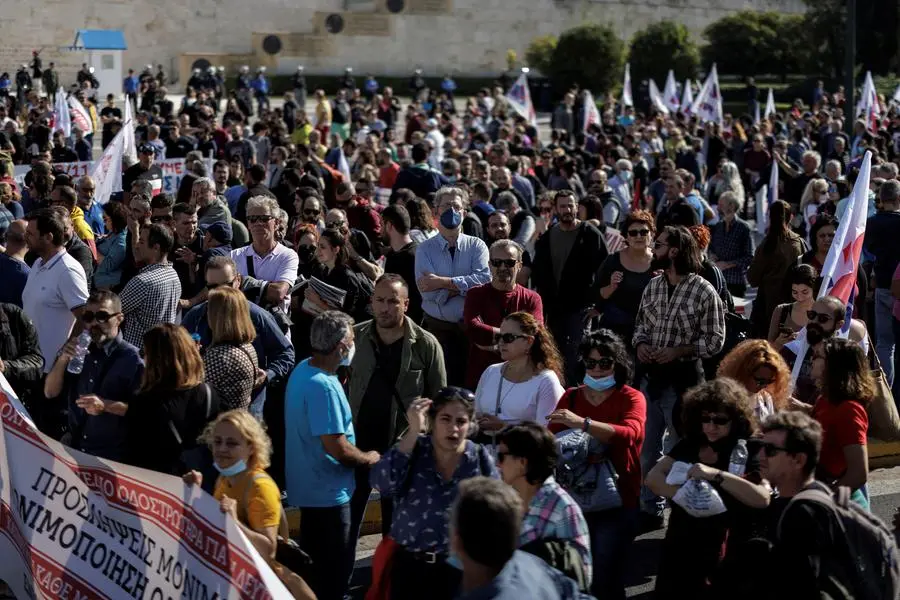PHOTO
Greek workers began a day-long strike on Wednesday, demanding higher wages to combat surging inflation, as soaring energy prices and living costs in Europe have triggered industrial action and protests across the continent.
In Athens, thousands of people marched in the second 24-hour walkout this year over rising inflation, some holding up banners that read, "No to layoffs, no to pay cuts."
Ferries were docked at ports and work stoppages by public transport staff brought traffic chaos to the capital. Some flights were grounded as air traffic controllers planned to join the walkout from 0800 GMT to 1400 GMT.
It is the latest labour action in Europe, where a growing cost of living crisis and rising energy costs following Russia's invasion of Ukraine have led workers to call strikes this month in Britain, France, Spain, and Germany, the biggest economy.
While the Greek economy is growing at nearly twice the euro zone rate this year thanks to a rebound in tourism, inflation is near a three-decade peak at 12%, among the highest in the zone's 19 countries.
"Workers ... are battling against the inflation suffocating Greek households, the jungle-like conditions in the labour market, against the burdens they have been carrying on their backs for years," said GSEE, the General Confederation of Greek Workers union.
GSEE, which represents the private sector, said it was "imperative" for the government to tackle inflation as the high cost of energy and basic goods was eating into people's disposable income.
Together with public sector umbrella union ADEDY, it is demanding an increase in the minimum wage, now at about 713 euros ($717) a month, and the restoration of collective labour law.
The unions represent more than 2.5 million workers in the country of about 11 million.
The conservative government has spent more than 9 billion euros since September 2021 on power subsidies and other measures to alleviate rising costs for farmers, homes and businesses.
It has promised to increase pensions next year for the first time since the country's financial crisis and raise the minimum wage further. ($1=0.9937 euros) (Reporting by Karolina Tagaris, Alkis Konstantinidis, Stelios Misinas; Editing by Mark Potter and Clarence Fernandez)





















